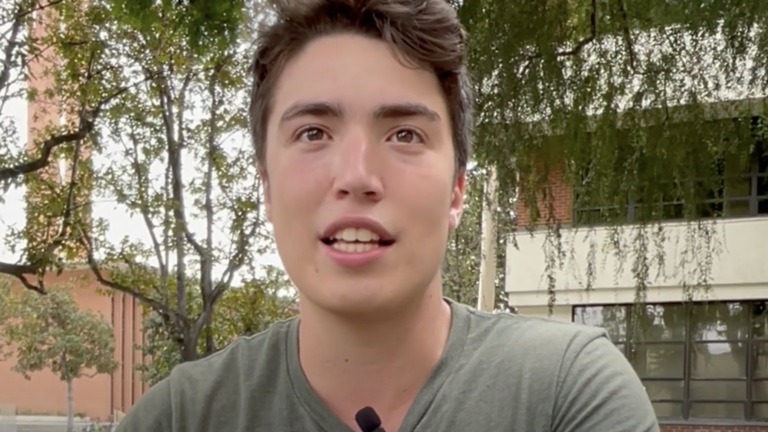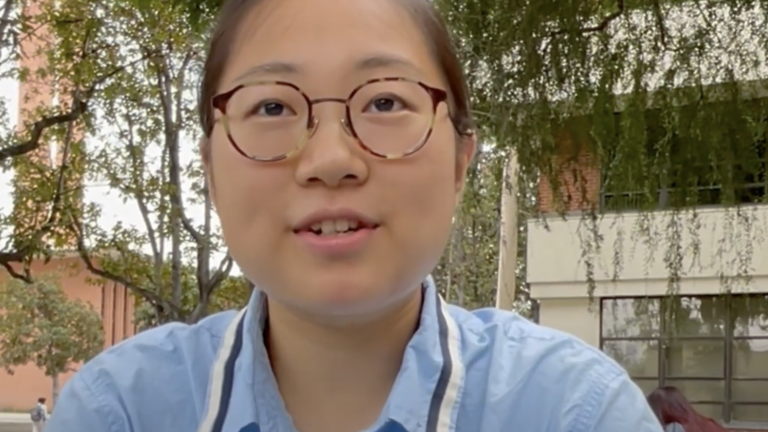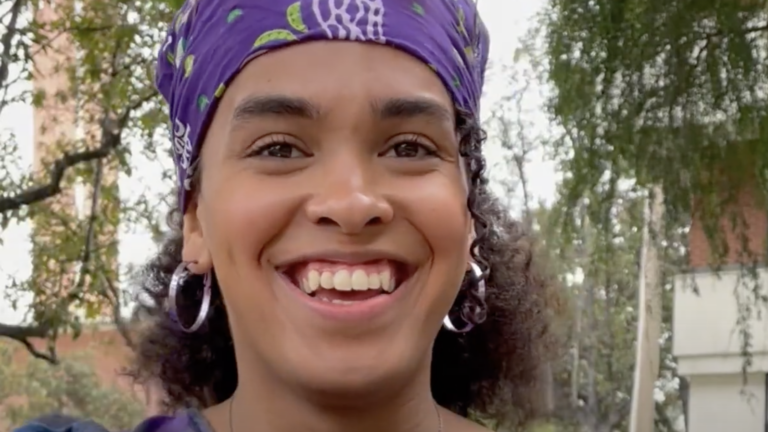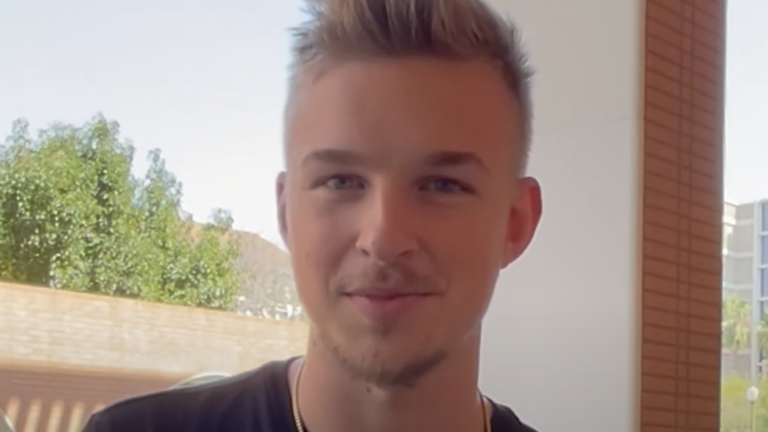Interviews with USC students studying languages
Learning Languages at @USC: Interview with William Russel (Human Security & Geospatial Intelligence)
William discussed his motivations for diving into language learning, shared valuable insights on self-guided language acquisition, and revealed his favorite foreign media sources. He also elaborated on his strategies for practicing German at USC, overcoming miscommunications when learning a new language, and maintaining confidence in foreign language conversations. Furthermore, William highlighted the significant role language proficiency has played in his life, what keeps him motivated, the language classes he’s taken at USC, and the importance of engaging with diverse cultures.
Wendy shares her journey into the world of language learning. She discusses her initial inspiration for taking up languages, highlights the factors that have contributed to her becoming a more proficient language learner, and describes her “aha” moment in the process. Wendy also reveals her favorite foreign language texts and offers insights on preparing oneself for reading advanced foreign language materials. She delves into the sources of her motivation for mastering multiple languages, provides recommendations for language learning resources, and shares effective methods for vocabulary retention, particularly through her experience at Hoplite. Wendy explores her future directions in language learning and how language skills will play a role in her career and studies.
Tips for Language Learning
-
Consider the positives of your ADHD. If doing fast paced and timed activities excites you, there are plenty of resources that will let you use this to your advantage to recall vocabulary and conjugation quickly. Duolingo has now built in many timed games throughout all its trees, and the Drops app is another visual and time-based language learning app that is helpful for vocabulary. For learning verb conjugation, you can try creating a matching game and time yourself completing it, either with physical or virtual flashcards.
Instead of focusing on one unit of your review at a time, you can try jumping around through content and mixing it up if this helps you keep your focus sharp. That is, don’t just study vocabulary one unit at a time, but build in exercises that hop between your learning from different parts of the semester.
If it’s hard for you to remember to take breaks while studying, try timing your studying in short bursts. In between, chug some water, eat a snack, get up and stretch, or listen to some music before transitioning back to studying. It can be helpful to have a small ritual to transition between these activities, whether it be a physical movement, deep breathing and counting, or visualization.
If you have a hyperfixation— a specific topic that excites you like no other, that you can talk about endlessly— try talking about it in your target language, either out loud or through writing. This is also a great opportunity to find out what vocabulary you may be missing that you want to learn in order to talk about a topic you are passionate about.
If you have sensory sensitivities and/or synesthesia, you can make these work for you! Associating specific vocabulary with certain colors, textures, or movements is incredibly helpful. Color-code the life out of your notes, do a tactile activity that you associate with your vocab, pace around while studying to associate the feeling movement with what you’re learning. The possibilities of sensory association with language learning are endless, so do what works best for you.
Whatever it is that excites and stimulates you the most, tap into it to connect it to your language-learning. Not only will this help your grades, but it will also bring out the fun in learning.
by Alex Polt-Gifford
-
I’ve found that what helps with language learning most is involving as many senses in the learning process as possible and creating study projects rather than staring at lists. Incorporating the language into your daily life is even better. Some helpful exercises are:
- Narrating the day to yourself in small moments as you go along. If you’re cooking or eating, try thinking of the food vocabulary in your target language. Focus on the taste of the food while thinking of an action or description you associate it with. If you’re walking around campus, try thinking of the directions in the language. Even if this isn’t the exact vocabulary that you need to study, it will get your brain in the mode of thinking in the language.
- You can try making a short vlog in your target language, narrating a few minutes in your life, or showing your “audience” around your dorm. (It never has to be posted!)
- If there’s a word you’re having trouble remembering, think of a song that you like in English that contains that word, and try translating the verse into your target language. Bonus if you can keep the same rhyming scheme as the original!
- On that note, verbs in so many languages follow certain groups of sound patterns. When you notice a cluster of verbs that rhyme or sound similar, try incorporating them into a poem or song of your own.
- Get crafty! For clothing vocabulary, make labeled paper dolls. Try incorporating key words into a doodle comic strip. If you do fiber arts or another craft that involves a lot of counting, try counting in your target language. This can also work for counting stairs as you walk up or down.
- If you enjoy watching TV in your target language to study, it’s fun to watch an episode all the way through, but you can also linger on scenes with a lot of vocabulary that you recognize. What stands out to you? Does the meaning automatically register for you, or do you mentally translate it into English first? Try finding all the verbs in one line, then the nouns and adjectives, etc. What stands out about the sentence structure of the dialogue?
- Finishing up level II of a language, many of you will be studying the past tense. Try creating a paragraph-long diary entry or short story using the past tense to get more comfortable with it. Or create a scrapbook page of a memory between you and a friend or family member, captioning with what you did in the past tense.
- For future tense, try creating a bucket list or travel list! If you’re looking forward to your summer plans, write or talk out loud about them.
These are only a couple of ideas for using the language often and creatively. Whatever works best for you, you will find a way to become better in the language you study!
by Alex Polt-Gifford
- Narrating the day to yourself in small moments as you go along. If you’re cooking or eating, try thinking of the food vocabulary in your target language. Focus on the taste of the food while thinking of an action or description you associate it with. If you’re walking around campus, try thinking of the directions in the language. Even if this isn’t the exact vocabulary that you need to study, it will get your brain in the mode of thinking in the language.



